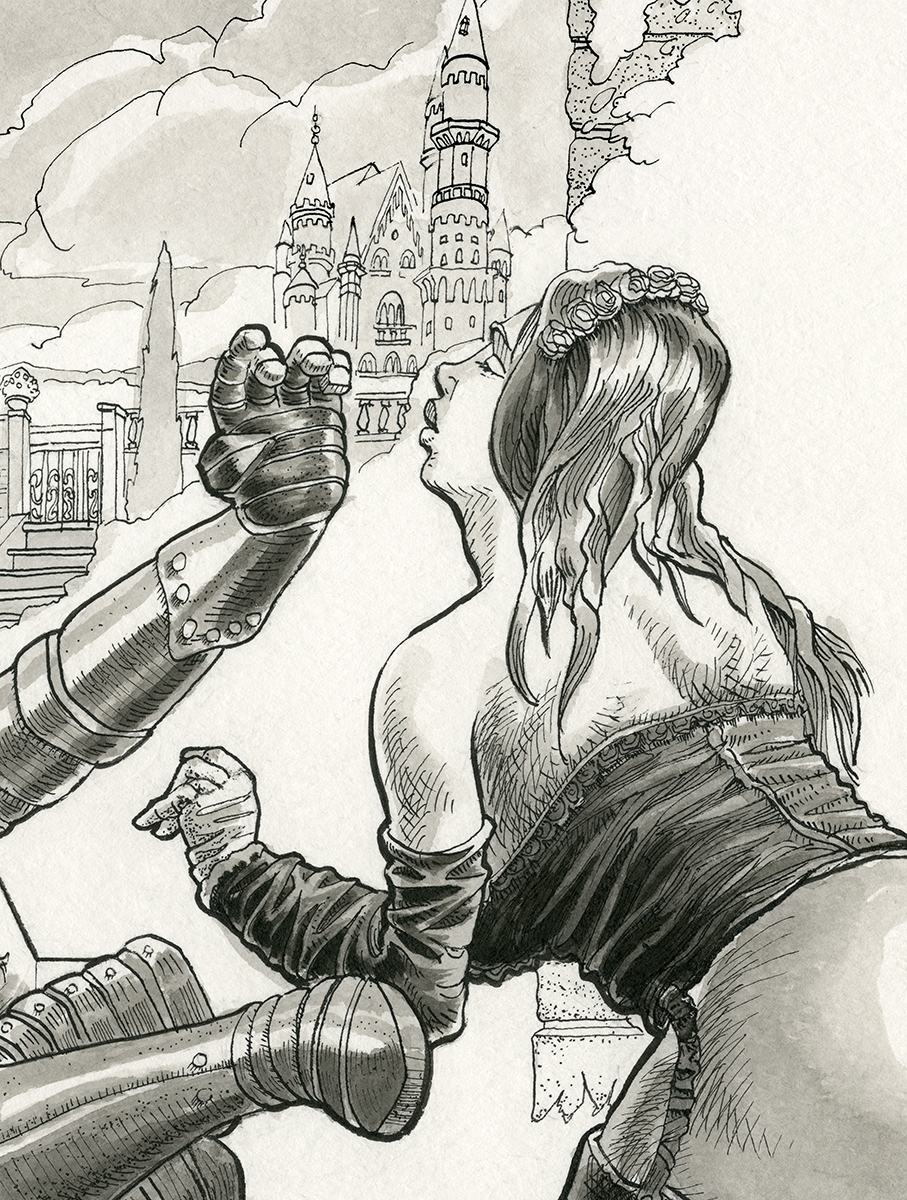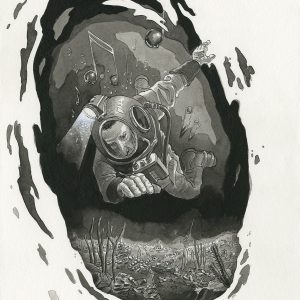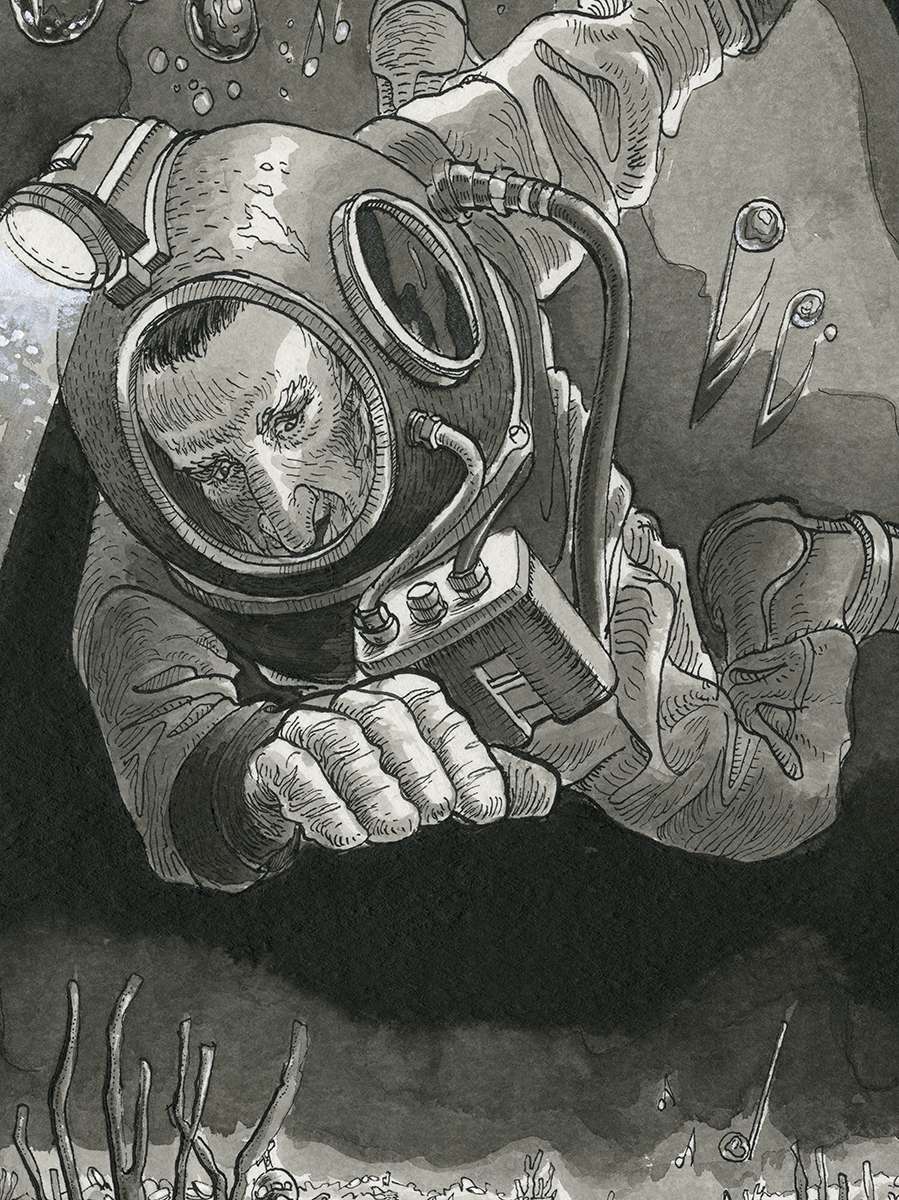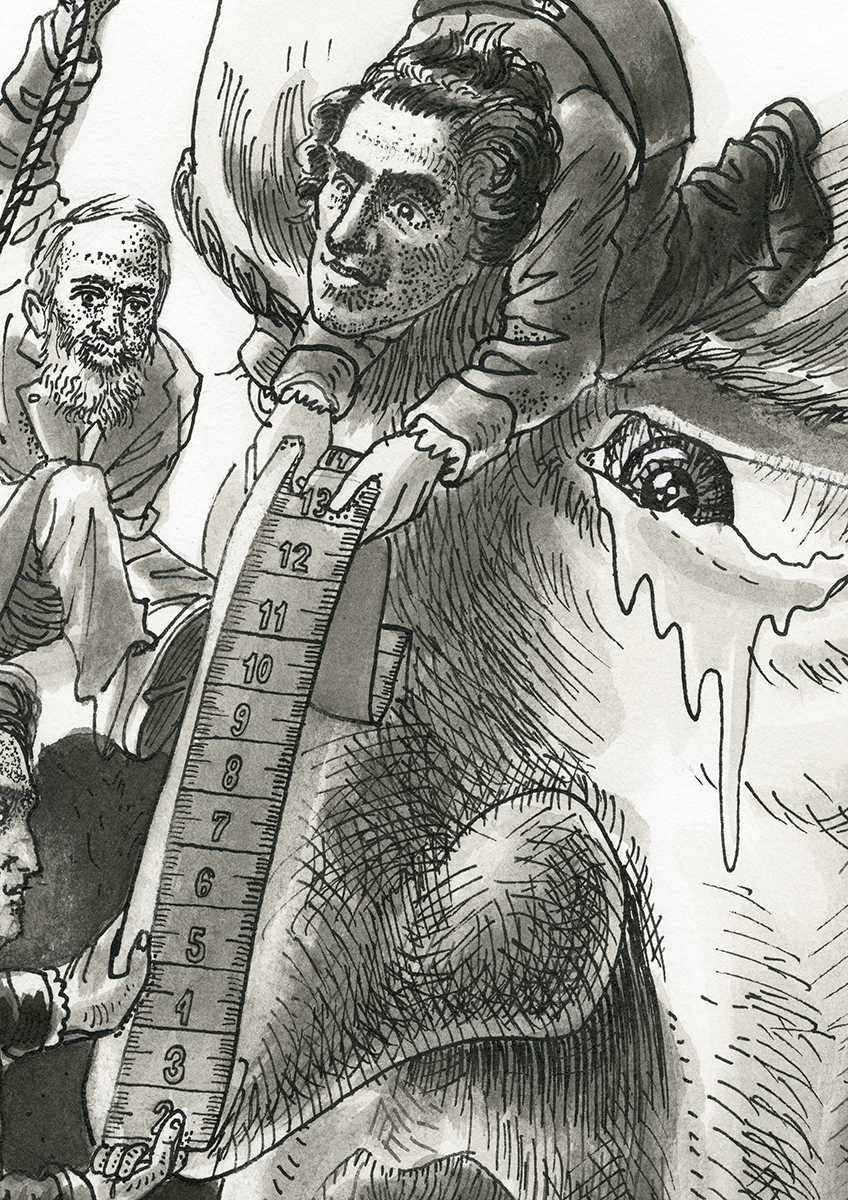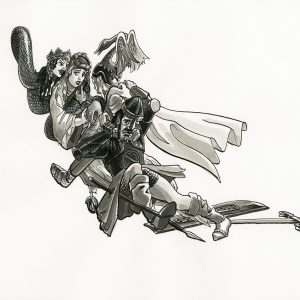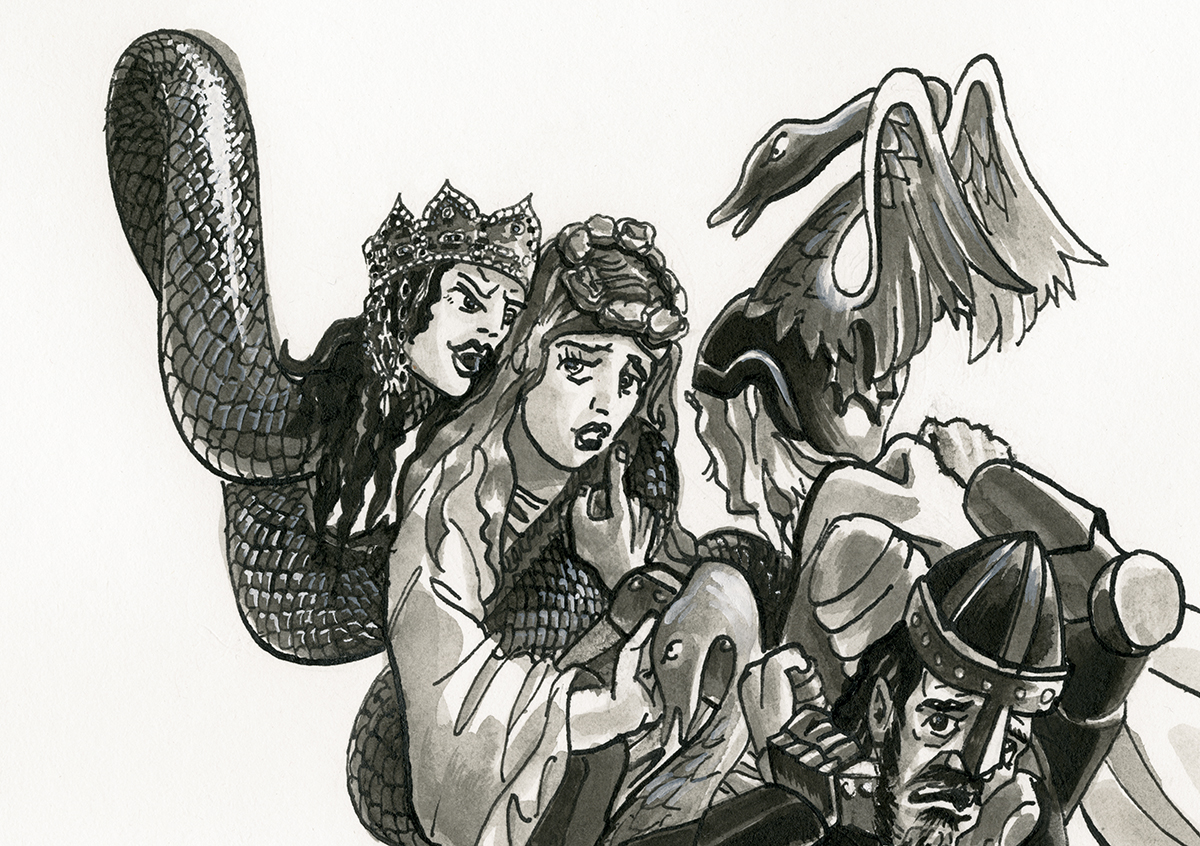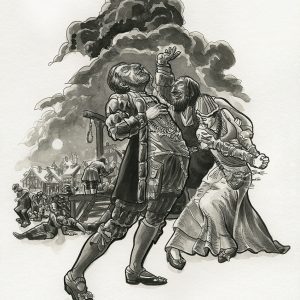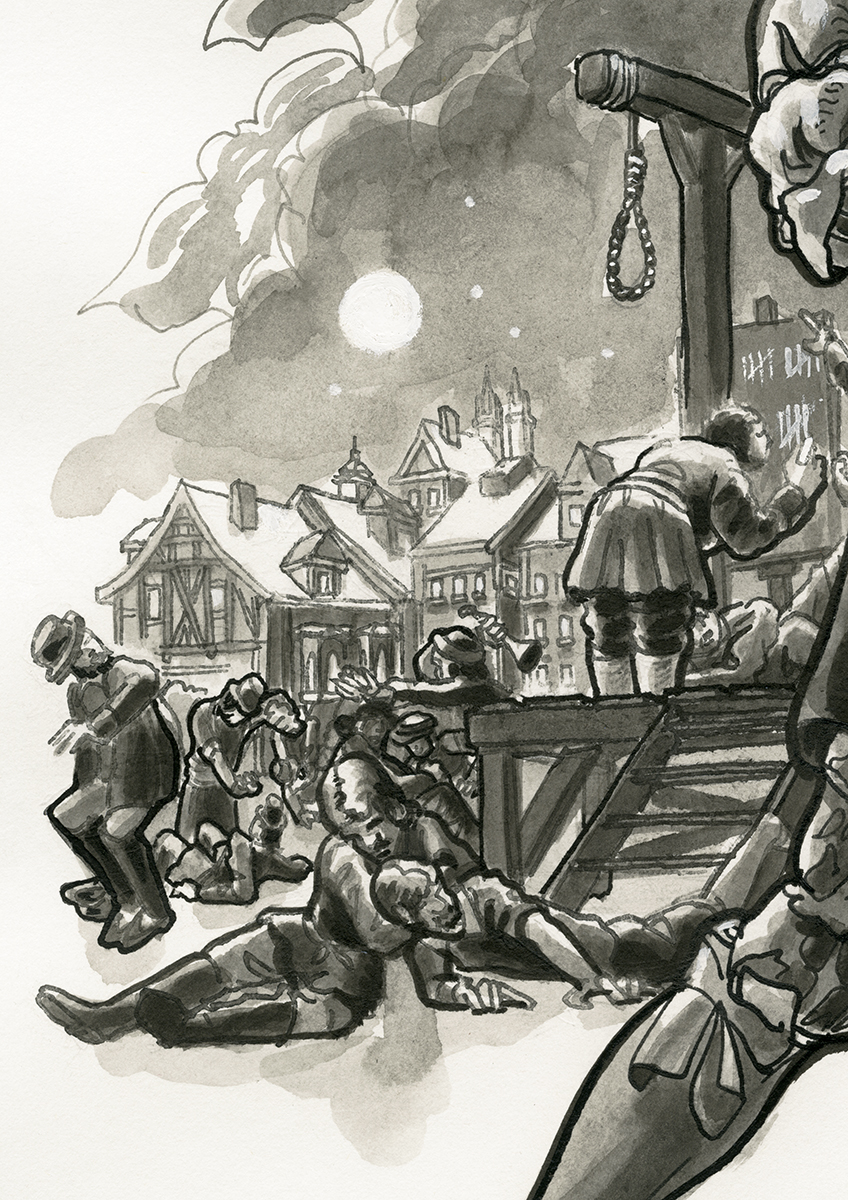Parsifal, 2012
Pen and ink, wash
18.9 x 14.2 inches. Private collection
The afore mentioned „Klingsor" had also sought admission to the knighthood. Since he had not succeeded in keeping to the commandment of chastity, he emasculated himself. However, since the Grail demands asceticism from free spiritual self-conquest, he was rejected. Thereupon, on the southern (pagan or Moorish-Arabic) side of the Monsalvat, he reached a magical castle, in whose paradise-like garden countless "flower girls" wait to seduce Grail knights wavering over their vows. In this way Klingsor hopes to weaken the enemy order so that Grail and spear – and thus infinite power – fall into his hands. [...]
With this, the suspicion that has been in the air for a long time, that the main problem on the entire Mount of Salvation (Monsalvat) is the uncontrollable sexual desire, has been proven true. This is not only a permanent private problem of Wagner and the subject of Christian moral teaching as well as of 19th century psychology. Today's listeners, who even while leafing through the program booklet come across advertisements that fifty years ago would have fallen victim to the protection of minors, must be irritated by the almost manic fashion in which the protagonists of Parsifal constantly accuse themselves of perversion."
(From: "The small Wagnerian", Enrik Lauer and Regine Müller, C.H. Beck Verlag)


